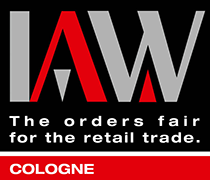Private Labeling: Find the right products
You encounter us almost daily in everyday life, and yet only insiders know what private label products are. From outsourced productions, individual design options to white label products and the launch of a successful private labeling, there are many things that should be considered before using private label products.
What is private labeling and how does it work?
The production of the product is outsourced to large manufacturers and producers who create the desired product and offer it for sale to various trading companies. Private-Label-Products can either match the name of the trading company or differ from it. After the product has been branded, the company sells the product to the end customer as its own. Legally, the trading company acts as the manufacturer of the product and bears the responsibility for it. Private label products include brands such as “Ja!” from Rewe or “gut & günstig” from Edeka.
In the course of private labeling, new products are established, which usually differ slightly from existing products. The modified version of the product is then distributed under the brand name, with small changes and improvements. To achieve a USP, it is advisable to consider customer feedback and optimize weaknesses in order to convince customers compared to the previous product. Changes can be made, for example, in terms of size, choice of material, or color.
How do private label and white label products differ?
White Label products are understood to be products that are initially manufactured without brand identification. The name White Label products comes from the fact that the products initially have only white stickers, so to speak, as they run as No Name items. It is only when the product is sold under different brands or private labels that the retailer applies their own branding, turning the white label product into a private label product. Different brand names can therefore represent the same white-label product. The retailer can no longer make any adjustments, but can only sell the existing product under their own name.
For whom is private label interesting?
Due to globalization and digitalization, it is no longer just large companies that can build a brand, but anyone can sell their branded product. For individuals with low start-up capital and beginners, products in the lower price segment between a selling price of 10 to 40 euros are suitable. So werden Produkte häufig im Ausland bei großen Herstellern produziert und gebrandet. After the product delivery, the buyer is the official manufacturer and can determine the pricing and sales channels. However, he must also fulfill all rights, obligations, and requirements. To build a profitable business with private label products, entrepreneurs in this area should thoroughly inform themselves about product development, trade, marketing, and e-commerce, and ideally have prior knowledge in these areas.
If you are interested in private labeling and are still looking for the right sales platform, our article “Online Sales Platforms: 5 Online Marketplaces Compared” can help you.
Private Label Benefits and Strengths
The greatest advantage of private labeling is the USP, due to the changes and improvements already made to the existing product. This sets the product apart from similar offers from competitors and makes it a unique selling point. Private Labeling offers retailers a variety of options for customizing the product. Whether the logo, the commercial, or the product design, the retailer can design individually according to their own wishes and create a unique customer journey that fully corresponds to the retailer’s ideas and is not bound by any requirements. The retailer also has control over pricing. This can determine the company’s own pricing strategy and thus influence the profit margin.
Disadvantages and weaknesses of private labeling
Due to production by a third-party manufacturer, there is a manufacturer dependency. Therefore, the right choice of a reputable and reliable manufacturer is of enormous importance for the retailer. Additionally, it can take some time and be difficult to successfully establish a new brand and build customer loyalty. Therefore, private label products are suitable for brands that already have an audience that trusts them.
Successfully market private label products
In addition to a selected product, a well-thought-out marketing strategy is also included. Products can, for example, appeal to a specific niche, clearly differentiate themselves from existing competitors, or dominate cost leadership by becoming the most cost-effective provider. Depending on the positioning, various strategies are available to best illustrate the competitive advantage.



